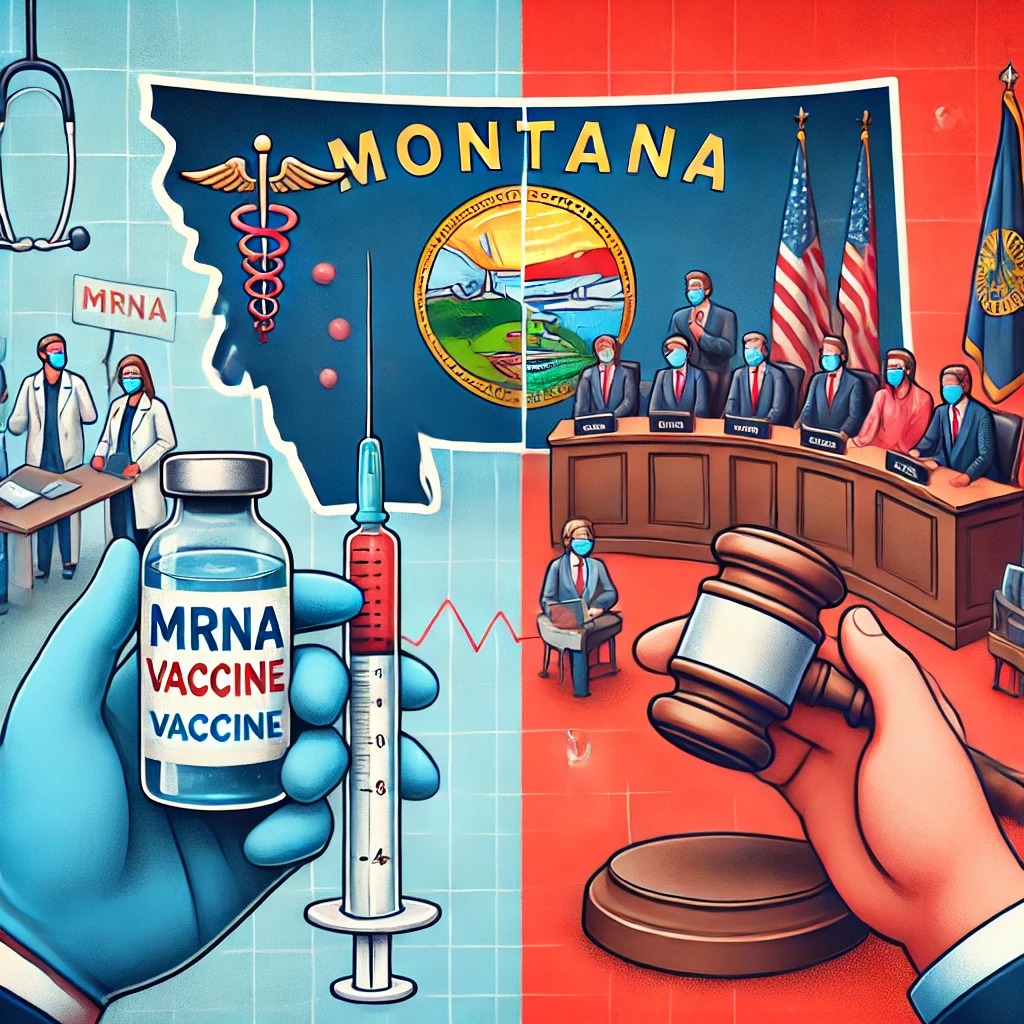Montana’s House Judiciary Committee has advanced House Bill 371, a controversial proposal to ban mRNA vaccines for infectious diseases, including Covid-19. Passed in a 12-8 vote along party lines, the bill now heads to the House floor for further debate. If enacted, Montana would become the first state to prohibit mRNA vaccines, setting a significant precedent nationwide.
What the Bill Proposes
House Bill 371 seeks to ban mRNA vaccines for infectious diseases but excludes gene therapy treatments used for cancer and genetic disorders. Healthcare providers administering mRNA vaccines could face a $500 fine per violation and potential license reviews.
Arguments for the Ban
Supporters argue that mRNA vaccines pose potential health risks and require more research. Some of the main concerns include:
- Potential DNA Contamination: Florida’s State Surgeon General, Dr. Joseph Ladapo, has raised concerns about nucleic acid contaminants in Pfizer and Moderna’s mRNA vaccines, particularly SV40 promoter DNA, which he suggests could integrate into human cells.
- Adverse Health Events: A 2022 Vaccine study by Fraiman et al. reported an increased risk of serious side effects like cardiac injuries, blood clotting disorders, and neurological conditions, estimating a 1 in 550 risk of severe complications.
- Lack of Long-Term Data: Critics argue that the long-term effects of mRNA technology remain unknown, with some fearing the integration of mRNA into the human genome, though health agencies dispute this claim.
Opposition to the Ban
Medical experts and public health organizations strongly oppose the bill, citing:
- Scientific Evidence of Safety: The FDA, CDC, and global health bodies affirm that mRNA vaccines are safe and effective, with no evidence of DNA integration or long-term harm.
- Medical Freedom & Access: Banning mRNA vaccines could limit treatment options for infectious diseases and disrupt patient-doctor decision-making.
- Potential Public Health Setbacks: The Montana Hospital Association, Montana Medical Association, and American Academy of Pediatrics warn that restricting mRNA vaccines could hinder efforts to combat hepatitis B, HPV, and future pandemics.
Wider Impact and National Context
Montana is not alone in questioning mRNA vaccines. States like Kentucky and Idaho are considering similar restrictions, reflecting a broader skepticism of mRNA technology. The debate extends beyond Montana, fueling discussions on public health policy, personal choice, and government oversight in medicine.
Reference: Dailyinterlake


Your article helped me a lot, is there any more related content? Thanks!